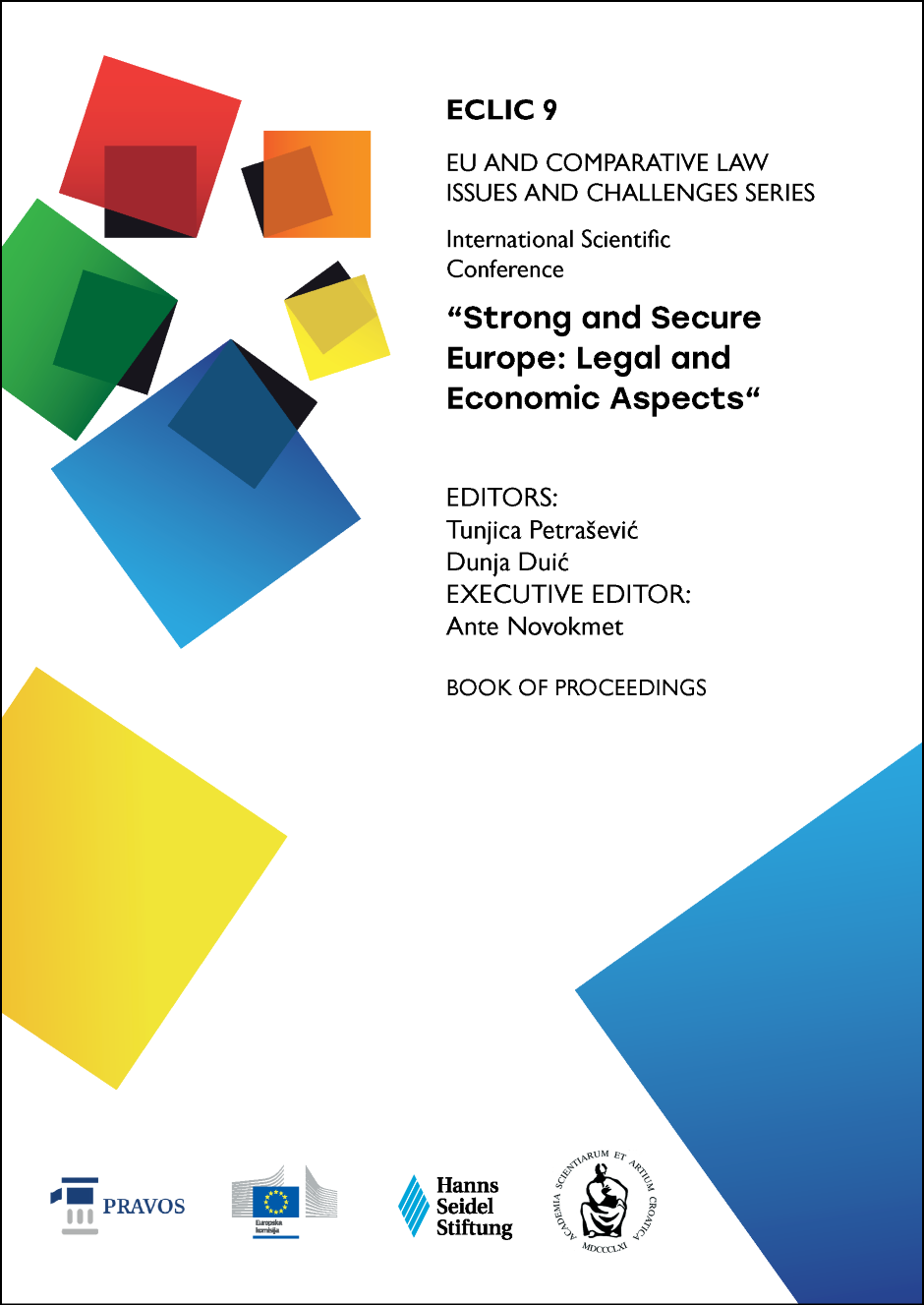ON THE PUBLIC HEALTH CRISIS
WITH SPECIAL REFERENCE TO THE CASE LAW OF THE CROATIAN CONSTITUTIONAL COURT
DOI:
https://doi.org/10.25234/eclic/38135Abstract
This article aims to explore the effect of the Public Health Crisis on liberal democracies such as the Republic of Croatia. We will focus on the experiences of the last such crisis - the COVID-19 pandemic, which the WHO declared on March 11, 2020. The article is divided into three parts. The first part of the article provides a conceptual analysis of the term “emergency” or “state of emergency”. Public health crises are only one type of crisis that trigger legal mechanisms intended for situations that go beyond the framework of “normal”. Therefore, these situations differ from normal and are spatially and temporally limited. They all have in common that they are unexpected, unpredictable and demand an urgent and exceptional reaction from the state. Although crises differ in scope, novelty, or secrecy, their separation is methodologically problematic. It is argued that public health emergencies are “scientific” in the sense that state authorities should primarily follow the recommendations of public health experts. The second part of the paper refers to the impact of crises on the state’s constitutional framework, the relations between the executive, legislative and judicial branches and the protection of human rights. This section of the paper will focus on the critical analysis of articles about this problem in the context of the COVID-19 pandemic. Most constitutions define emergencies and mechanisms to protect the democratic order from usurpation of power. However, these terms are broadly formulated and, in practice, have proven unclear. The answers to the posed questions should prove vital if and when the EU decides to adopt a more comprehensive emergency legal framework by providing guidelines on essential issues that may arise. The final part of the article provides an overview of arguments presented by different authors regarding whether the COVID-19 pandemic and the response in Croatia represented a state of emergency as defined under Article 17 of the Constitution. This is notable because the Parliament passed COVID–19 legislation under Article 16, which does not recognise a crisis. This section of the paper explores why the Constitutional Court did not acknowledge this distinction while reviewing pandemic-related legislation. It questions whether the Croatian constitutional framework adequately ensures mechanisms are in place to confirm that an emergency is still ongoing, preventing it from exceeding the “necessary” timeframe and potentially becoming “the new normal.” It also examines whether said framework provides sufficient parliamentary and judicial oversight of the executive branch, as discussed in European Parliament research papers from 2020 and on, showing it to also be an important issue at the EU level. All this is done through an analysis of landmark cases of the Constitutional Court of the Republic of Croatia.
Downloads
Published
Issue
Section
License
Copyright (c) 2025 Ivana Tucak, Ivica Pavić, Žaklina Harašić

This work is licensed under a Creative Commons Attribution-NonCommercial 4.0 International License.
Authors retain the copyright on the papers published in the Journal, but grant the right of first publication to the Journal. Papers accepted for publication or already published in ECLIC of the Faculty of Law in Osijek may be published by the author(s) in other publications only with proper notice of its previous publication in ECLIC.


